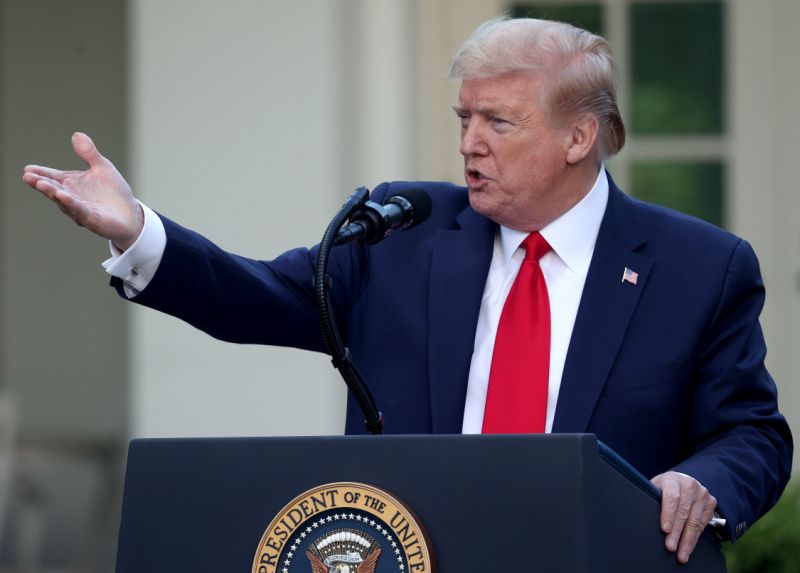President Donald Trump said Monday that he is not taking any responsibility for the reported spike in people seeking help related to unsafe disinfectant use, even though he floated the idea of using disinfectant as a potential COVID-19 cure last week.
Trump denied that his comments had played any role in those reports at his Monday briefing, the first time he’d taken questions at a press conference since his remarks about injecting people with disinfectant and sunlight faced nearly universal condemnation. Trump later claimed that suggestion was sarcastic.
“I can’t imagine why,” Trump said Monday when a journalist noted a reported rise in the misuse of disinfectant since then.
“Do you take any responsibility?” the reporter continued.
“No. I can’t imagine, I can’t imagine that,” Trump said before quickly moving on to another reporter’s question.
Since Trump’s remarks last week, multiple cities and states have reported a spike in calls to poison control centers about exposure to disinfectant, forcing officials and the makers of cleaning products to issue warnings about ingesting such chemicals.
The New York City Poison Control Center received 30 calls about exposure to household chemicals in the 18 hours after Trump’s remarks, compared to only 13 during the same period last year.
Maryland Gov. Larry Hogan (R) said Sunday that his office had received “hundreds of calls” seeking guidance on Trump’s suggestion even after the state’s Emergency Management Agency issued a warning last week about ingesting disinfectant.
Earlier at Monday’s briefing, Trump and other members of the coronavirus task force outlined a new plan for issuing coronavirus tests, though it was scant on details about solving problems in the supply chain and other testing capacity issues.
Despite state leaders calling for a federal-level effort at ramping up testing, the task force said states would be largely responsible for increasing access to tests. Under the plan presented Monday, all 50 states would receive enough tests from the federal government each month to screen 2% of their populations.
HuffPost














